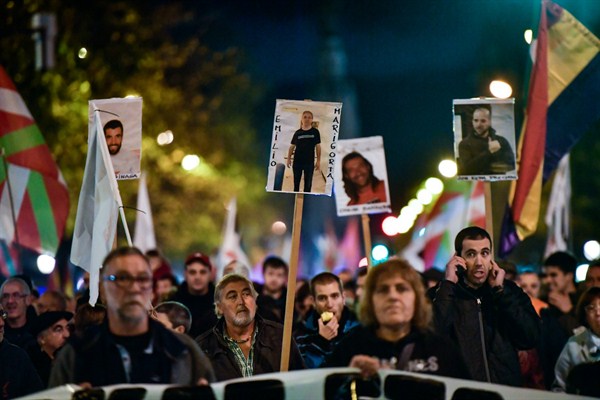The dissolution of the Basque separatist group, ETA, came as little surprise. It had ceased to pose a security threat, and its legacy of violence had alienated would-be supporters. Enthusiasm for Basque nationalism remains rife, however. As pro-independence voices become more emboldened, Madrid may be hard-pressed to keep them quiet.
BILBAO, Spain—In Spain’s northern Basque region, residents often joke that “everything is ETA.”
What they mean is that all kinds of seemingly benign behavior—wearing traditional clothing, speaking the Basque language or even sporting tattoos of certain Basque symbols—can expose them to accusations of belonging to the Basque separatist group, whose full name, Euskadi Ta Askatasuna, translates to “Basque Homeland and Freedom.”

